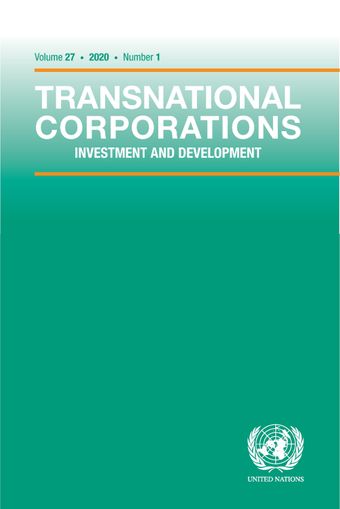-
Substituting expats with locals: TNCs and the indigenization policies of Saudi Arabia
- Source: Transnational Corporations, Volume 27, Issue 1, May 2020, p. 63 - 86
-
- 14 May 2020
Abstract
Owing to rising unemployment among Saudi nationals, the Kingdom of Saudi Arabia (KSA) has instituted Saudization, a localization policy that strives to induce the employment of more Saudi nationals in the private sector. A major gap in the literature is the lack of empirical investigation regarding the relationships between indigenization and the underlying principles of its process. This study seeks to fill this gap. The study assesses the success or otherwise of the Saudization initiative empirically and uncovers several features. It finds that TNCs that experience the external pressures to localize their workforce, and those that wish to enhance their social legitimacy, are more likely to comply with Saudization. Furthermore, TNCs do not believe that the process of localization provides them with economic gains. Legal coercion to adhere to the Saudization initiative turns out to be a highly significant instrument in making TNCs adhere to the localization process. The study also finds that neither age nor the size of the firm have an impact on the Saudization programme. Implications for theory and practice are drawn out.





